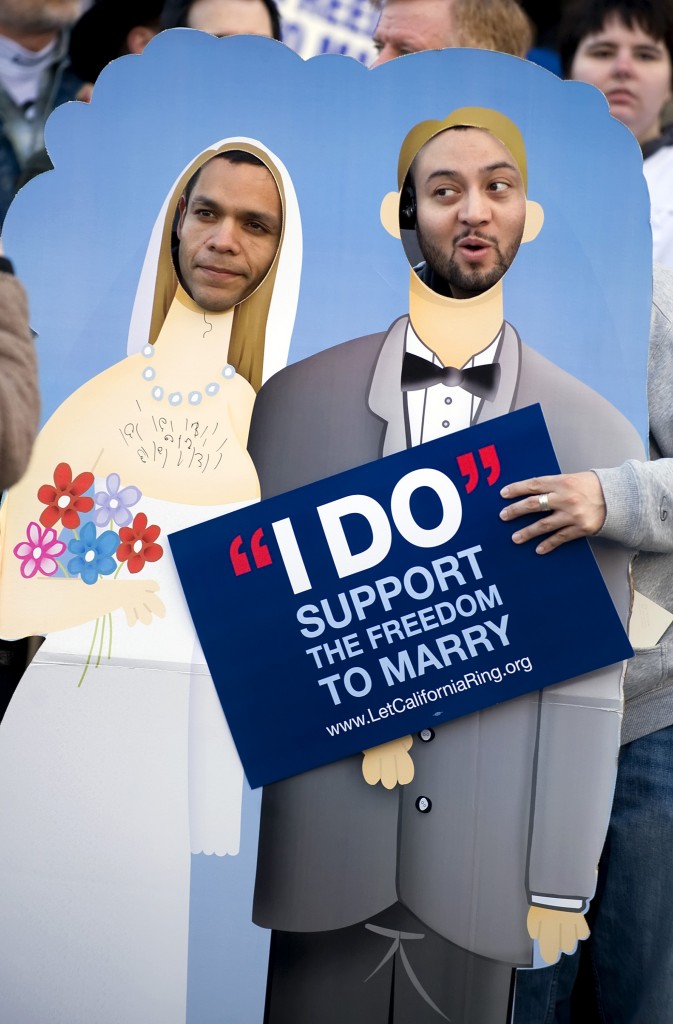
The Supreme Court is going to begin a review of California’s Proposition 8 March 26, which currently denies gay and lesbian couples the right to marry.
Proposition 8 was passed by California voters in November 2008. Since then, many lawsuits have been filed in an attempt to overturn the proposition.
Many, like student Fiona Henry, 19, have not kept up with the proposition since 2008.
“I don’t even know why it’s even a proposition and why we ever voted on it. Whether you’re gay or not you’re still a person and you should be allowed to get married. What happened to the separation of church and state?” Henry said.
The California Supreme Court ruled on March 15 2008 that Proposition 22, which defined marriage “between a man and a woman,” violated The Equal Protection Clause in the California constitution and was therefore invalid.
Immediately after the ruling , between June 16 and Nov. 4, 2008, approximately 18,000 same-sex couples were married in California.
However, the effect of legalizing same-sex marriage prompted the inclusion of Proposition 8 on the November 2008 ballot.
California voters approved Proposition 8 by a 52.3 percent majority placing Proposition 22’s definition of marriage in the state’s constitution, prohibiting same-sex marriage the day after the Nov. 4, 2008 election.
Proposition 8 was upheld in Straus v. Horton at the California Supreme Court on May 26, 2009. However, under the grandfather clause, which allows exemptions based on preexisting conditions, existing same-sex marriages that took place between June 16 and Nov. 4, 2008, were determined to be legal.
On Aug. 4, 2010 Judge Vaughn Walker, former district judge in the United States District Court for the Northern District of California, ruled in Perry v. Schwarzenegger that Proposition 8 is unconstitutional.
He determined that Prop 8 violates The Equal Protection and Due Process clauses of the Fourteenth Amendment, that is, no state shall deny any individual from privileges and protections of a citizen in the United States.
“Because Proposition 8 is unconstitutional under both the Due Process and Equal Protection Clauses,” Judge Walker stated, “the court orders entry of judgment permanently … prohibiting the official defendants [state of California] from applying or enforcing Proposition 8…”
On Feb. 7, 2012, in a three-judge panel, The Ninth Circuit Court of Appeals declared Proposition 8 unconstitutional and in the violation of the Federal Constitution.
After the Ninth Circuit Court of Appeals denied requests by proponents of the proposition to rehear the case, they filed a writ of certiorari (an appeal to review case) to the United States Supreme Court to review the case.
If the Supreme Court rules that Proposition 8 is unconstitutional “It would be a huge validation of human rights,” said English professor Anna Villeneuve, “and saying that all couples are looked on equally.”
The Supreme Court is expected to make a decision on Prop 8 in the coming months.
“I talked to my students about this. There’s a story called ‘A Worn Path” and Phoenix Jackson [the protagonist in the story] is fighting for equality in civil rights era,” said Villeneuve. “And she is pushed back time and time again. There are people saying go home and that message is we’re not ready for you, but the message of Phoenix Jackson is she has every right to be on that path.”
“Whether or not you accept her on the path she has the right to walk it.”
With that analogy, Villeneuve states that however the Supreme Court rules in June, supporters of same-sex marriage will still be on the “path” to deliver social change in the respect of marriage equality.


